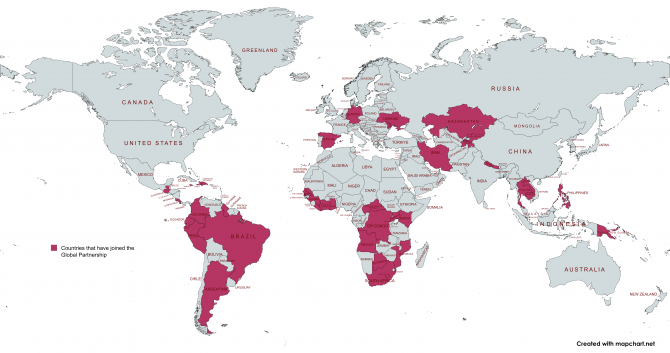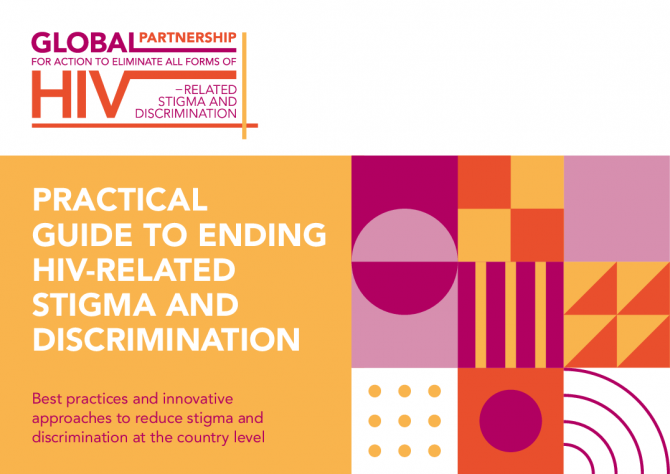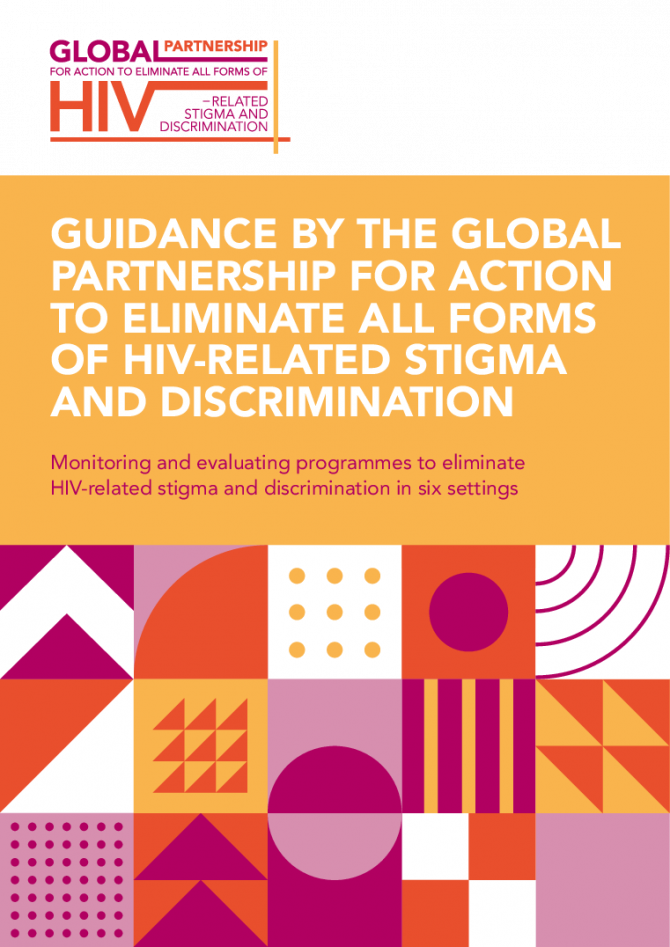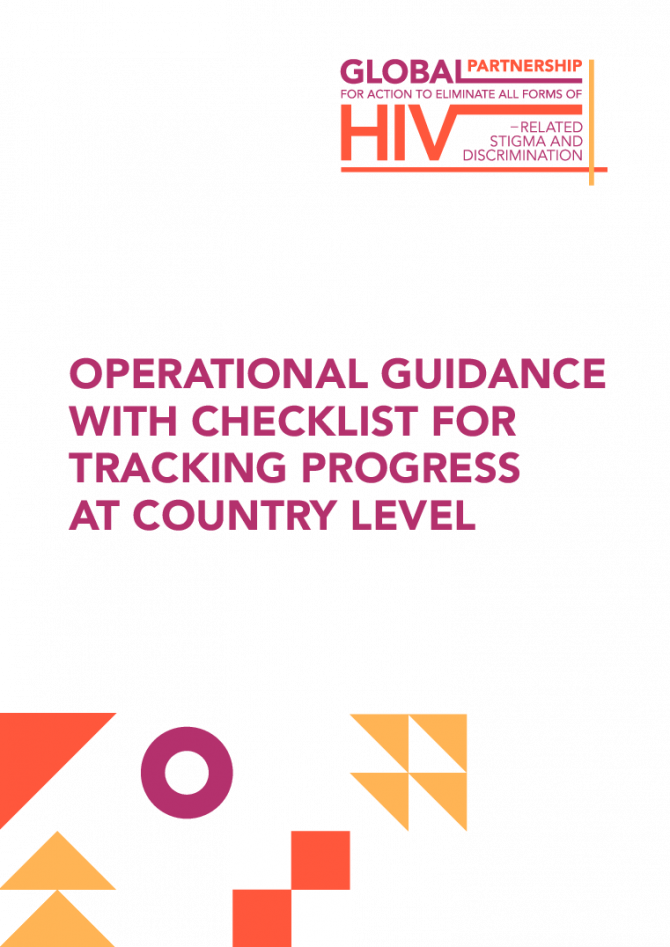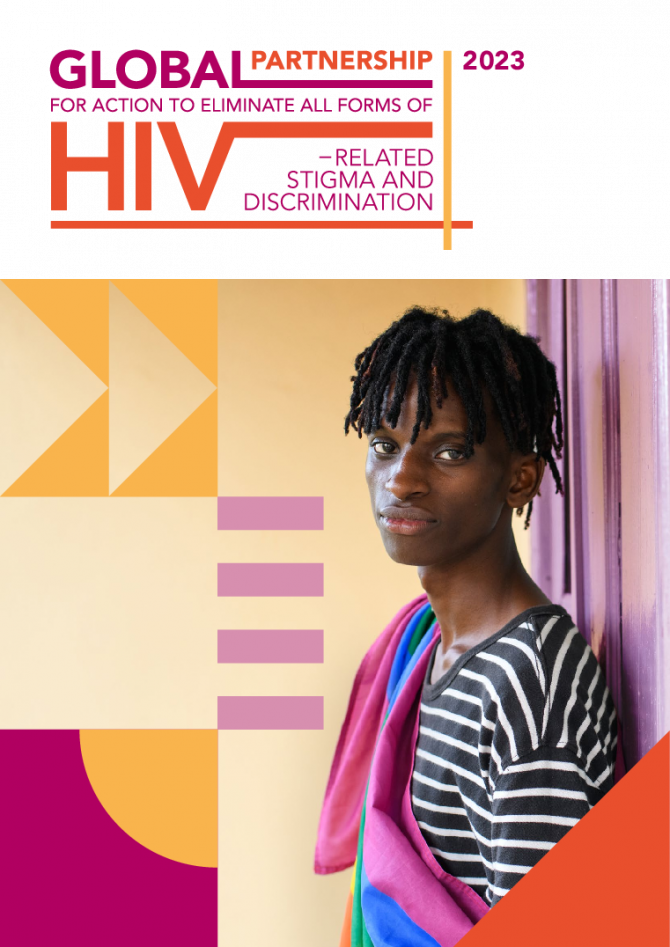Error message
Could not retrieve the oEmbed resource.
The Global Partnership for Action to Eliminate all Forms of HIV-related Stigma and Discrimination
The Global Partnership for Action to Eliminate all Forms of HIV-Related Stigma and Discrimination (Global Partnership) was established in 2018 following a call to action by the nongovernmental organization delegation to the UNAIDS Programme Coordinating Board (PCB NGO Delegation). It is co-convened by UNAIDS, UN Women, the United Nations Development Programme, the Global Network of People Living with HIV, the PCB NGO Delegation and the Global Fund to Fight AIDS, Tuberculosis and Malaria. It is supported by a technical working group comprised of 10 United Nations agencies and 24 civil society organizations.
UN agencies
- UNAIDS
- UNDP
- UNICEF
- UNESCO
- UNFPA
- UNODC
- UN Women
- WFP
- WHO
- ILO
Civil society organizations
- International Community of Women living with HIV Eastern Africa (ICW-EA)
- International Council Of Aids Service Organizations (ICASO)
- RedTraSex
- Athena Network
- Asia Catalyst
- International Federation of Medical Students Associations (IFMSA)
- Youth Engage
- Positive Women Voices
- Anti-AIDS Teachers Association Zambia
- Africa Sex Workers Alliance (ASWA)
- International Development Law Organization (IDLO)
- Asia Pacific Network of People Living with HIV (APN+)
- Klub Svitanok
- Uganda Network of Young People Living with HIV/AIDS (UNYPA)
- Frontline
- All-Ukrainian Network of People Living With HIV
- CARE International
- Asociación de Mujeres Meretrices de Argentina (AMMAR)
- HIV Justice Worldwide
- What Girls Want Campaign
- Asociación Ciclo Positivo
- Global Network of People Living with HIV (GNP+)
- NGO Delegation to the UNADS PCB
- Brighton and Sussex Medical School
As of October 2024, 40 countries have formally joined the Global Partnership, committing to take action on HIV-related stigma and discrimination across six settings in the next five years. These countries are:
- Latin America & Caribbean
- Argentina
- Brazil
- Colombia
- Costa Rica
- Dominican Republic
- Ecuador
- Guatemala
- Guyana
- Haiti
- Jamaica
- Peru
- Eastern & Southern Africa
- Angola
- Botswana
- Kenya
- Lesotho
- Mozambique
- South Africa
- Uganda
- Western & Central Africa
- Central African Republic
- Côte d'Ivoire
- Democratic Republic of the Congo
- Gambia
- Ghana
- Guinea
- Liberia
- Senegal
- Europe & Central Asia
- Germany
- Kazakhstan
- Kyrgyzstan
- Luxembourg
- Moldova
- Spain
- Ukraine
- Tajikistan
- Asia & the Pacific
- Cambodia
- Iran
- Lao People's Democratic Republic
- Nepal
- Papua New Guinea
- Philippines
- Thailand
As eliminating all forms of HIV-related stigma and discrimination is fundamental to achieving the Sustainable Development Goals and targets by 2030, including ending AIDS, the Global Partnership aims to catalyse and accelerate the implementation of commitments to end HIV-related stigma and discrimination in six settings:
- Health care.
- Education.
- The workplace.
- Legal and justices systems.
- Individuals, households and communities.
- Emergency and humanitarian settings.
Programmes and commitments to eliminate HIV-related stigma and discrimination focus on the populations being left behind, including, but not limited to, people living with HIV, key populations (gay men and other men who have sex with men, sex workers, transgender people, people who use drugs and people in prisons and other closed settings), indigenous populations, migrants and women and girls, particularly adolescent girls and young women.
Please note: for anyone using the GP Wordmark you must follow the Branding Guidance & Policy Use of WordMark

